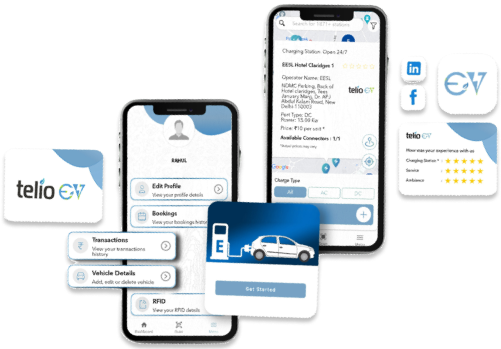Enhancing Electric Vehicle Charging with Advanced Management Software

The fast adoption of electric vehicles (EVs) has actually necessitated the development of efficient and user-friendly charging solutions. Central to this evolution are Electric Vehicle Charging Management Software (EV CMS) and EV Charging Apps, which streamline the charging procedure for both operators and users.
Comprehending EV Charging Management Software
EV Charging Management Software acts as a thorough platform that makes it possible for Charge Point Operators (CPOs) and other stakeholders to monitor, manage, and optimize EV charging stations. Key functionalities consist of real-time monitoring of charging stations, user authentication, payment processing, and energy management. By integrating these features, the software makes sure effective operation and improves the user experience.
Key Features of EV Charging Management Software
1. Real-Time Monitoring and Control: Operators can supervise the status of charging stations, track energy consumption, and address concerns without delay.
2. User Authentication and Access Control: The software manages user gain access to, guaranteeing that only authorized individuals can utilize the charging centers.
3. Payment Processing: It assists in smooth transactions, supporting various payment approaches to accommodate diverse user choices.
4. Energy Management: By optimizing energy circulation, the software decreases operational expenses and supports grid stability.
5. Reporting and Analytics: Comprehensive information analysis aids in informed decision-making and tactical planning for network growth.
The Role of EV Charging Apps
EV Charging Apps are developed to offer EV owners with convenient access to charging facilities. These applications provide features such as finding close-by charging stations, real-time schedule updates, navigation support, and remote monitoring of charging sessions. By boosting ease of access and user engagement, these apps play a crucial function in promoting the adoption of electric vehicles.
Integration with Open Charge Point Interface (OCPI)
The Open Charge Point Interface (OCPI) is a standardized procedure that helps with interoperability in between different EV charging networks. Combination with OCPI enables smooth roaming, allowing users to gain access to several charging networks with a single account. This interoperability boosts user convenience and broadens the accessibility of charging facilities.
Benefits of Implementing Advanced Charging Solutions
- Enhanced User Experience: User-friendly user interfaces and dependable services increase consumer satisfaction and commitment.
- Operational Efficiency: Automation and real-time monitoring minimize manual intervention, lowering operational expenses.
- Scalability: Advanced software solutions support the expansion of charging networks to satisfy growing demand.
- Revenue Generation: Flexible prices models and effective payment processing open new income Electric Vehicle Charging App streams for operators.
Conclusion
The combination of EV Charging Management Software and user-centric EV Charging Apps is pivotal ahead of time the electric vehicle environment. These technologies not just streamline operations for service providers however likewise significantly improve the charging experience for users. As the EV market continues to grow, the adoption of such innovative solutions will be instrumental in satisfying the increasing need for efficient and accessible charging facilities.